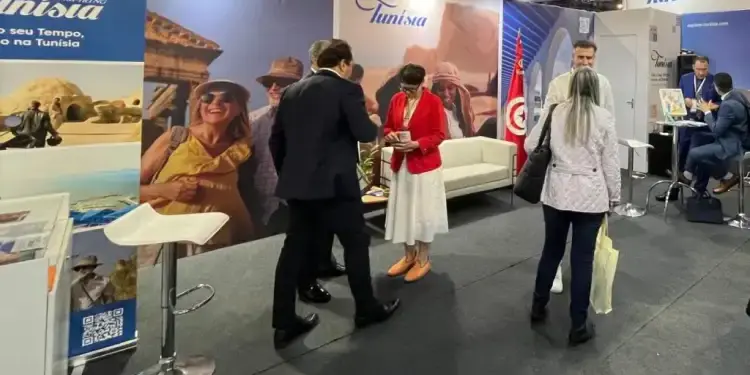In a world where tourist flows redraw the cards of the soft power, Tunisia dares to venture off the beaten track. For the first time, our country participates in the WTM Latin America show in São Paulo, a presence that sounds like a signal: Tunis no longer wants to remain confined to its European pre -square.
The first results are there. In 2024, 5,000 Brazilian tourists walked our soil, an increase of 30 % compared to the forefront, reports Anba, the press agency in the Arab-Brazilian Chamber of Commerce. Far from a simple thrill, this figure nourishes an ambition: reaching 15,000 annual visitors within ten years. A daring but realistic CAP, provided you think beyond the slogans.
At the maneuver, Leila Tekaia, a mission leader for Spain, Portugal and Brazil, patiently weaves the sons of this new tourism diplomacy. His visit to the Arab-Brazilian Chamber of Commerce, alongside Consul Hassen Saadani, embodies this desire to combine culture, economics and strategy.
But the logistical challenge is size. If a quarter of visitors arrive today by cruise, these stops remain fleeting. As for Tunisair, in the middle of a reinvention site, it is not yet able to ensure long-haul connections. In the meantime, it will be necessary to bet on alternative air partnerships.
To seduce Brazilian, you need dreams. And Tunisia has it to resell: the warm breath of the desert, the alleys of Djerba, the remains of a millennial past that speak to the soul as much as to the eye. You still have to know how to tell them, sell them, embody them.
This turning point to South America is not a simple commercial bet. It is a question, for our country, of reinventing its image, of expanding its horizon, of making the elsewhere vibrate by reconnecting to oneself. Tourism as a gentle diplomacy, as an influence relay, as a recovery lever.








